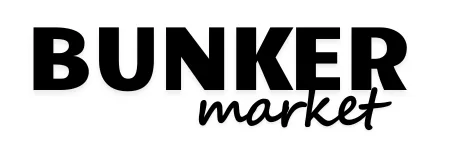The Global Maritime Forum (GMF) and RMI (originally founded as the Rocky Mountain Institute), operating under the umbrella of Mission Innovation, have unveiled a report highlighting strategies for ports to take the lead in offering green methanol and ammonia bunkering. This report sheds light on potential sources of green methanol and ammonia for the shipping sector and outlines how ports can ensure a steady supply to meet the International Maritime Organization’s (IMO) target of incorporating at least 5% zero-emission fuels by 2030.
As the maritime industry progresses towards decarbonization, significant shifts in the procurement and distribution of marine fuels are anticipated. The report underscores that the cost-effectiveness of transporting green methanol and ammonia, derived from green hydrogen, will foster extensive trade routes connecting regions of low-cost production to pivotal ports. Policy backing for green shipping fuels holds the promise of substantially influencing a country or region’s standing in this burgeoning hydrogen-based economy.
Aparajit Pandey, Principal and Shipping Decarbonization Lead at RMI, remarked, “Federal incentives in the Inflation Reduction Act have positioned the United States as one of the most competitive regions globally for green fuel production. Smaller ports endowed with abundant renewable resources, notably those in the Global South, can establish cost-competitive hydrogen production facilities and engage in the global bunker market.”
The study foresees distinct supply dynamics for green ammonia and green methanol as production scales up over the next decade. Trends in green methanol production suggest a concentration of supply in major bunkering hubs and European ports.
In contrast, the study envisions a global trade in green ammonia, with the fuel transported over long distances to key bunkering hubs from projects in regions with low production costs, including the United States, South America, Australia, and Sub-Saharan Africa.
Jesse Fahnestock, Director of Decarbonization at the Global Maritime Forum, cautioned, “While there should be an ample supply of green ammonia to cater to first-mover ports by 2030, competition for the most economically viable volumes may intensify, rewarding those who act swiftly to secure supply.”
As ports strategize to meet the IMO’s target for at least 5% of international shipping fuel to be zero- or near-zero emission by 2030, they hold a pivotal role in facilitating the adoption of zero-emission fuels in this decade.
The study identifies four groups or “archetypes” of ports likely to emerge during this transition, characterized by common opportunities, challenges, and necessary actions for developing green methanol or ammonia bunkering. Drawing from examples such as Singapore, Algeciras, Corpus Christi, Seattle & Tacoma, and Rotterdam, the report furnishes tailored recommendations for pioneering ports in each group to lead the industry’s decarbonization. This archetype framework is poised to aid ports in devising strategies for implementing green methanol or ammonia bunkering.
Sveinung Oftedal, Chief Negotiator – Green Shipping, Norwegian Ministry of Climate and Environment, and Chair of the Zero-Emission Shipping Mission under Mission Innovation, expressed gratitude, stating, “As chair of the Zero-Emission Shipping Mission, I would like to thank all the contributors to the study. International knowledge sharing on the role of ports in developing low-emissions shipping fuel markets is key. Ports can use their influence to help decarbonize maritime shipping by engaging in hydrogen import-export coalitions and green shipping corridors, and by shaping standards and guidelines for bunkering these new fuels to accelerate first mover investments.”
Read the full report Click Here.
About Global Maritime Forum
The Global Maritime Forum, established in 2017, is an international not-for-profit organization dedicated to shaping the future of global seaborne trade. Based in Copenhagen, Denmark, it convenes visionary leaders and experts to foster sustainable long-term economic development and human well-being. With a staff of approximately 45, it operates independently and does not endorse specific technologies or companies.
About RMI
RMI, originally Rocky Mountain Institute founded in 1982, is an independent nonprofit striving to revolutionize global energy systems toward a clean, prosperous, zero-carbon future. With offices across critical locations like Basalt, Boulder, New York City, Oakland, Washington D.C., and Beijing, RMI engages various stakeholders to scale energy interventions, aiming to cut greenhouse gas emissions by at least 50% by 2030.
About Zero-Emission Shipping Mission
Zero-Emission Shipping Mission, a collaborative effort involving countries, private sector entities, research institutes, and civil society, seeks to demonstrate commercially viable zero-emission ships by 2030. Focusing on the entire value chain—from ship design to fuel production and infrastructure—the mission aims to accelerate the maritime sector’s transition to hydrogen-based fuels.
Source Global Maritime Forum

